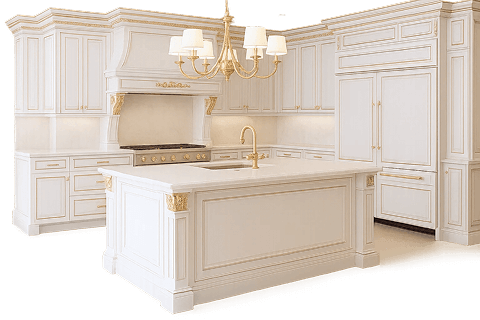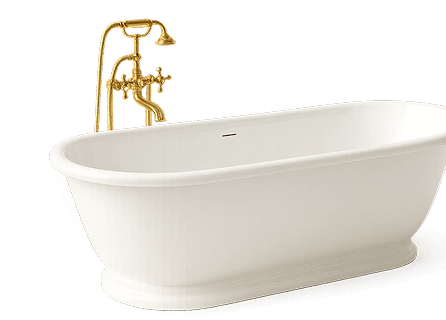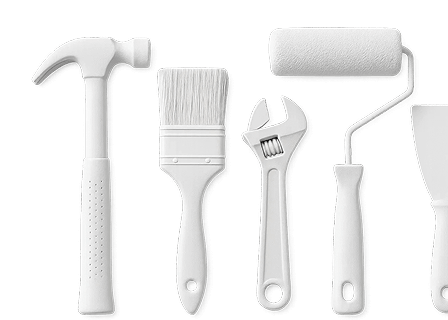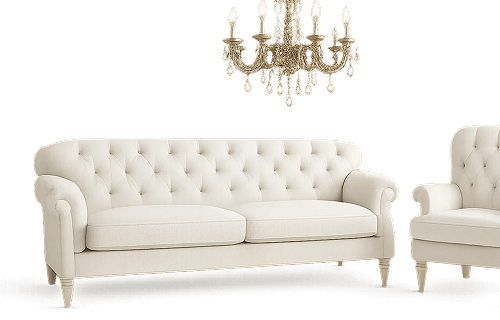How Much Does It Really Cost to Renovate Your Home in Canada?
When it comes to home renovation projects, the question on everyone’s mind is: how much will it cost me? On average, the home renovation cost per square foot in Canada in 2026 ranges between $120 and $275 depending on the extent of the work and the level of finishes you select.
For a light cosmetic upgrade, such as new paint, basic flooring, and minor kitchen improvements, you might stay closer to the $120 per square foot mark. However, for more complex renovations, particularly those involving structural repairs or electrical upgrades, the cost can quickly climb towards the $250 to $275 range.
Here’s a basic overview of typical renovation categories:
| Renovation Type | Average Cost per Square Foot (2026) |
|---|---|
| Cosmetic upgrades | $120 – $150 |
| Mid-range kitchen or bathroom renovation | $180 – $225 |
| Major structural or full gut renovation | $250 – $275 |
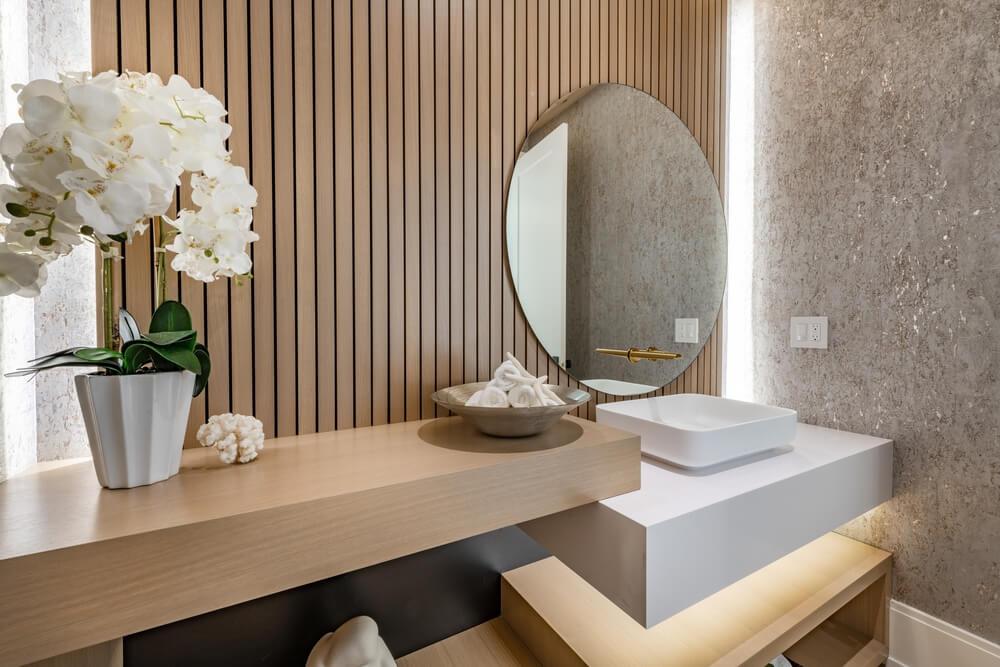
Wondering How Home Renovation Costs Differ in Canada?
Not all renovations are priced equally across provinces. Costs can fluctuate drastically due to differences in labour costs, materials availability, and even building code requirements. Here’s how the average cost per square foot varies in 2026 across Canada:
| Region | Average Renovation Cost per Sq. Foot | Labor Costs | Material Costs |
|---|---|---|---|
| Toronto (ON) | $150-$200 | $40-$60/hr | $50-$70/sq ft |
| Vancouver (BC) | $160-$210 | $45-$65/hr | $55-$75/sq ft |
| Montreal (QC) | $130-$180 | $35-$50/hr | $45-$65/sq ft |
| Calgary (AB) | $140-$190 | $40-$55/hr | $50-$68/sq ft |
| Halifax (NS) | $125-$175 | $30-$45/hr | $40-$60/sq ft |
| Edmonton (AB) | $135-$185 | $38-$55/hr | $48-$70/sq ft |
For instance, home renovation costs in Alberta cities are generally lower than in Toronto or Vancouver, where the overall cost can skyrocket due to labour shortages and higher permit fees.
Other factors driving renovation costs in certain regions include climate-resilient building practices, mandatory energy efficient upgrades, and region-specific land transfer taxes during property transactions.
Breaking Down Home Renovation Cost Per Square Foot
When planning a home renovation, one of the most common ways to estimate costs is by the square foot. This metric is useful for understanding the general pricing of various projects, from kitchen renovation cost to full-house upgrades. In 2026, the average cost per square foot for a home renovation in Canada ranges significantly, depending on factors such as the type of project, materials chosen, and the complexity of the work involved.
What Affects Renovation Costs Per Square Foot?
- Project Type
For smaller projects, such as bathroom or kitchen renovations, the cost per square foot may be slightly higher due to specialized materials and labor. A complete home renovation, however, might see a lower cost per square foot due to economies of scale, as larger projects benefit from bulk material purchases and longer timelines. - Material Choices
The materials you choose can dramatically affect the overall renovation costs. Standard materials for flooring, walls, and cabinets tend to be less expensive than luxury options like marble countertops or hardwood flooring. - Labour Costs
Labour costs vary not just by region, but also by the skill level required. If you’re working with specialized contractors such as electricians, plumbers, or structural engineers, expect to pay a premium for their expertise.
Table: Estimated Cost Breakdown for Different Renovation Projects (Per Square Foot)
| Renovation Type | Estimated Cost (Per Sq Ft) |
|---|---|
| Kitchen Renovation | $180 – $350 |
| Bathroom Renovation | $150 – $300 |
| Basement Renovation | $120 – $250 |
| Full Home Renovation | $100 – $200 |
| Exterior Renovation | $90 – $180 |

Can We Save on Labour Costs for Renovation Projects?
Labour is often the single largest contributor to house renovation cost. But there are ways to manage these expenses smartly without sacrificing quality. Hiring reputable contractors who are transparent about labour costs from the beginning will save you far more money than choosing the cheapest bid.
Key factors influencing labour costs:
- Scope of Work: Larger projects like whole house renovations cost more simply due to manpower and timeline.
- Specialized Skills: Electrical, plumbing, and structural repairs require certified specialists, increasing hourly rates.
- Location: Urban areas generally have higher labour costs due to demand.
- Project Complexity: Complex kitchen or basement renovation layouts mean more work hours.
One potential tactic to minimize labour fees is scheduling work during contractors’ slower seasons (typically late fall) when professional services may offer more flexible pricing. Another method includes choosing materials that are faster and easier to install without compromising durability.
Home Renovation Services and Overall Cost Trends in 2026
The landscape of home renovation services is evolving, and so are the renovation expenses that come with it. New trends like energy efficient upgrades, smart home systems, and custom architectural features are changing both the overall cost and customer expectations.
The biggest trends influencing 2026 renovation projects include:
- Substantial renovation upgrades like smart lighting systems, premium air filtration, and net-zero home designs.
- Increased demand for load bearing wall adjustments to accommodate open-concept living spaces.
- Higher use of recycled, sustainable materials, slightly pushing up material costs but reducing environmental impact.
We’re also seeing more clients looking for garage renovation add-ons to expand living space or create dedicated home offices. As these home improvement projects become more ambitious, they often turn simple cosmetic updates into more complex projects.
Homeowners planning a renovation should always reserve an additional 15-20% of their renovation budget for additional costs that often arise from hidden issues like mold, outdated electrical systems, or foundation cracks.
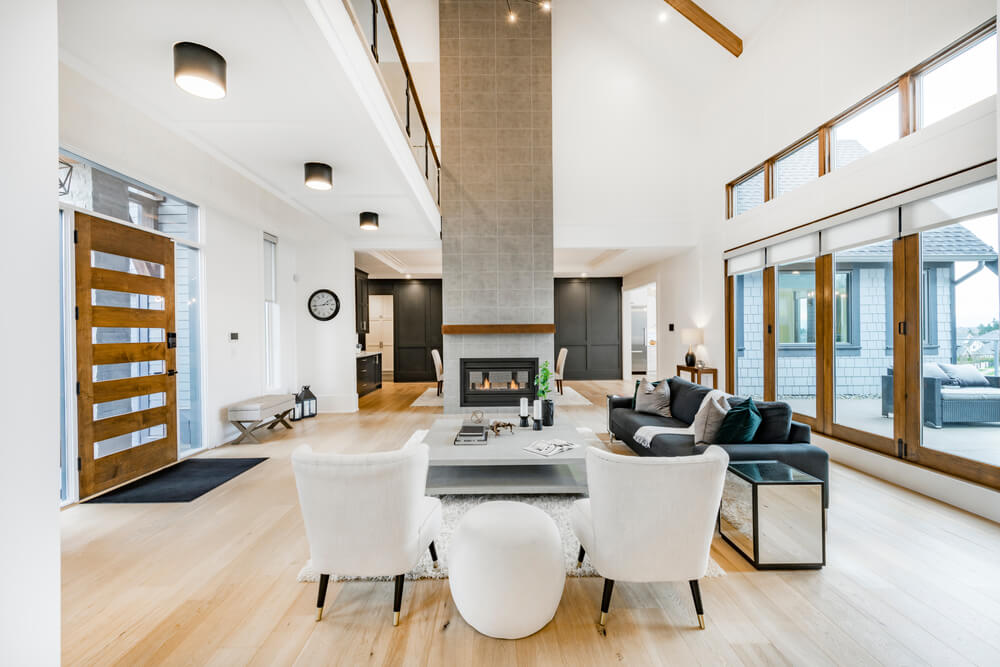
How Labor Costs Influence Your Home Renovation Budget
When calculating your renovation costs, labor is often one of the most significant expenses. Whether you’re renovating a kitchen, bathroom, or completing a full home renovation, the labor cost can account for up to 40% or more of your total budget.
Labor costs in Canada can be highly influenced by the type of work being done. For instance, skilled trades like electricians and plumbers typically command higher hourly rates than general contractors or laborers. Additionally, labor costs can fluctuate depending on the complexity of the renovation project.
Average Labor Costs in Canada (2026)
| Labor Type | Average Cost per Hour |
|---|---|
| General Contractor | $45-$75 |
| Electrician | $65-$95 |
| Plumber | $60-$90 |
| Carpenter | $50-$80 |
| Painter | $30-$50 |
| Roofer | $50-$80 |
In terms of total labor costs, renovation projects in major urban areas tend to be more expensive due to higher demand for skilled labor. Cities like Toronto and Vancouver may see contractors charging at the top end of the above ranges. In contrast, smaller towns or regions with a less concentrated market of contractors may have more competitive labor rates.
Material Costs and How They Affect Overall Cost
Material costs play a key role in determining the total expense of a home renovation. While labor can take up a significant portion of the budget, the materials used for the project can also contribute heavily to the overall cost. Different renovation projects demand different types of materials, and the price can vary based on quality, brand, and availability. For example:
- High-end finishes, like granite countertops or custom cabinetry, can drastically increase the cost of a kitchen renovation.
- Luxury flooring options such as marble or hardwood are often more expensive than tile or laminate.
- Energy-efficient windows and insulation materials might carry a higher upfront cost but provide long-term savings in heating and cooling costs.
Here’s a breakdown of the material costs for common home renovation projects:
| Material Type | Cost per Square Foot (Average) |
|---|---|
| Laminate Flooring | $1.50-$4.00 |
| Hardwood Flooring | $4.50-$12.00 |
| Granite Countertops | $40-$100 |
| Quartz Countertops | $50-$120 |
| Ceramic Tile Flooring | $2.50-$6.00 |
| Energy-Efficient Windows | $350-$850 per window |
| Custom Cabinets | $200-$500 per linear foot |
The material choice for a home renovation project can significantly affect the overall cost. Homeowners looking to enhance the value of their property often opt for higher-end materials. However, if staying within budget is the main priority, opting for mid-range materials that balance quality and cost can be a good alternative.

Unexpected Costs in Home Renovation Canadians Overlook
When homeowners set their renovation budget, they often focus on visible expenses like new flooring, light fixtures, or cabinetry. However, some bathroom renovation cost remain hidden until the construction site is active, adding unexpected expenses to your renovation projects.
Common Hidden Costs Renovations
- Structural Issues: Hidden damage such as mold, water leaks, or foundational cracks can inflate costs.
- Electrical Work Updates: Old wiring may not meet the current code, necessitating expensive upgrades.
- Permit Delays: Waiting for approvals or unexpected permit fees can cause project delays and additional labour costs.
Even something as simple as modifying a floor plan can trigger extra charges if walls are load-bearing or contain hidden plumbing or wiring. It’s important to plan a realistic budget that includes a 10%-20% contingency fund to account for these surprises.
| Unexpected Cost Category | Average Additional Cost |
|---|---|
| Electrical code upgrades | $2,500 – $5,000 |
| Plumbing rework | $1,800 – $4,000 |
| Mold remediation | $2,000 – $6,000 |
| Asbestos removal | $3,000 – $7,500 |
| Structural repairs (minor) | $5,000 – $10,000 |
Setting a realistic cushion in your cost estimation is not just wise — it’s critical. Otherwise, temporary relocation and additional rental fees could easily pile on if your living space becomes uninhabitable mid-project.
From Cosmetic Upgrades to Structural Repairs Explained
The difference between cosmetic upgrades and structural repairs is massive — not only in scale but in cost too. While painting and replacing light fixtures fall under cosmetic improvements, dealing with a failing load-bearing wall or foundation involves structural changes that demand professional engineering solutions.
Cosmetic vs Structural Work in Renovations
- Cosmetic Upgrades: Painting, new cabinetry, upgraded flooring, new countertops.
- Structural Repairs: Foundation repairs, replacing load-bearing walls, major plumbing overhauls, reworking electrical panels.
For example, installing a new hardwood floor costs about $8 per square foot, but repairing a cracked foundation could cost upwards of $25,000. Mid range renovations often involve a mix of cosmetic and structural changes. Understanding what your renovation requires will protect you from scope creep and ballooning budgets.
| Type of Work | Average Cost (Canada 2026) |
|---|---|
| Painting | $2 – $6 per sq ft |
| Flooring installation | $6 – $10 per sq ft |
| Foundation repair | $10,000 – $25,000+ |
| Load-bearing wall removal | $3,500 – $6,500 |
| Electrical panel upgrade | $1,500 – $3,000 |
Knowing the line between cosmetic and structural changes helps homeowners set priorities and ensures the renovation fits into the realistic budget they’ve planned.

Managing Permit Fees and Building Permits in Canada
One of the most overlooked elements of a complete renovation is the building permit process. Permits are mandatory for any substantial renovation, whether it’s a kitchen remodel, a bathroom addition, or a major floor plan adjustment. Skipping this step can result in fines or costly tear-down orders.
Typical Permit Costs in 2026
Permit fees vary by region and project scope, but most homeowners should budget between $1,000 and $3,500. Complex jobs that require multiple trades — such as electrical work and plumbing — may need several permits, each adding to the total.
| Project Type | Average Permit Fee |
|---|---|
| Kitchen renovation permit | $1,200 – $2,000 |
| Bathroom addition permit | $1,000 – $1,800 |
| Full house renovation permit | $2,000 – $3,500 |
| Load-bearing wall permit | $800 – $1,500 |
Many municipalities in Canada have also begun introducing e-permit systems to streamline applications. However, delays are still common, especially when renovations involve structural changes. Building permits protect your investment, ensure inspections are conducted, and validate that your home improvement project complies with local codes.
Energy Efficiency Upgrades That Lower Total Cost
Integrating energy efficiency upgrades into your renovation project isn’t just an environmental move — it’s a smart financial decision too. Upgrades like better insulation, high-efficiency HVAC systems, and smart thermostats offer substantial cost savings over time by lowering utility bills and increasing property value.
Top Energy-Efficient Renovations in 2026
- Windows and Doors: Installing Energy Star-rated products can save up to 15% on heating and cooling.
- HVAC Systems: High-efficiency furnaces and heat pumps cut energy consumption dramatically.
- Insulation: Spray foam insulation significantly reduces heat loss, especially in older homes.
| Energy Upgrade | Estimated Initial Cost | Expected Annual Savings |
|---|---|---|
| High-efficiency furnace | $4,000 – $7,000 | $500 – $900 |
| Spray foam insulation (attic) | $2,000 – $5,000 | $200 – $400 |
| Energy-efficient windows (whole home) | $8,000 – $20,000 | $300 – $600 |
Choosing energy-efficient options during kitchen and bathroom renovations can also qualify homeowners for government rebates, reducing upfront costs. Plus, energy improvements naturally boost resale value by making homes more attractive to environmentally-conscious buyers.
Whole House Renovations—Are They Worth the Cost?
Deciding whether to pursue a whole house renovation is a major commitment. It demands careful cost estimation, a realistic budget, and an honest evaluation of your home’s current condition and its future potential. In 2026, the average cost of a full home renovation in Canada ranges from $100 to $200 per square foot, depending on the choice of materials, labour requirements, and the overall complexity of the renovation project.
Factors That Justify a Full Home Renovation:
- Age of the Home: Older properties often require extensive updates to meet modern standards for safety, energy efficiency, and contemporary design.
- Structural Repairs Needed: Homes that need major work, such as foundation stabilization, roofing system overhauls, or significant electrical work, usually benefit from a full renovation approach.
- Market Value Increase: Comprehensive renovations can substantially raise the home’s appraised value, making it a strong investment for the future.
Scope of Renovation and Typical Costs:
- Cosmetic Updates Only: Projects focusing on paint, light fixtures, and flooring typically cost between $100 and $150 per square foot.
- Full Gut Renovation: Removing everything down to the studs and rebuilding new layouts usually costs between $175 and $250 per square foot.
- High-End Luxury Renovation: Projects that involve luxury upgrades, top-tier materials, and extensive design customization often range between $250 and $400 per square foot.
While the upfront investment in a whole house renovation may seem steep, the long-term benefits often outweigh the initial costs. Modernizing outdated floor plans, improving energy efficiency, and enhancing overall comfort can translate into significant cost savings on utilities, fewer maintenance issues, and a stronger return if you ever decide to sell. H
Handling Load Bearing Wall and Structural Changes
Removing or altering a load-bearing wall isn’t as simple as knocking it down. It requires a full assessment of the floor plan, proper structural support (like beams or posts), and the correct permits. In 2026, the cost of handling a load-bearing wall can range from $3,500 to $10,000, depending on the complexity of the project and the materials used.
Key Considerations When Modifying Structural Walls:
- Engineering Assessments: Always involve a structural engineer before making any decisions.
- Building Permits: Structural changes require approval from your local municipality, with fees ranging based on the scope.
- Labour and Material Costs: Specialized labour is more expensive; expect costs to climb with more complex renovations.
- Impact on Living Space: Removing walls can create a more open and modern living area, improving property value.
- Electrical Work Adjustments: If the wall contains wiring, rerouting can add unexpected expenses to your renovation budget.

High-End Renovations—Luxury Upgrades or Money Pit?
Luxury upgrades like imported marble countertops, designer cabinetry, and custom-built decks can make your home feel like a dream — but they come with a hefty price tag. One of the biggest debates among homeowners undertaking renovation projects in 2026 is whether these high-end additions are worth the total cost.
High-end renovations typically range between $250 to $400 per square foot, far above the cost of mid-range renovations. Whether it’s a gourmet kitchen renovation, spa-like bathroom retreat, or luxury outdoor living space, these projects demand not only premium materials but expert craftsmanship.
Common High-End Upgrades in Home Renovations:
- Custom Cabinets and Countertops: Premium materials like quartz, granite, and custom woods.
- Designer Light Fixtures: Smart lighting systems that can transform the ambiance of a room.
- High-End Flooring: Options like heated hardwood floors or imported stone tiles.
- Advanced Smart Home Features: Automated security systems, climate control, and integrated sound systems.
While the appeal of high-end finishes is undeniable, not all luxury upgrades provide a strong return on investment. Homeowners should focus on upgrades that not only improve aesthetics but also boost property value and energy efficiency.
How Weather Influences Exterior Renovations in Canada
Canada’s diverse weather patterns greatly influence exterior renovations, especially when it comes to roofs, decks, siding, and fences. From the bitterly cold winters to the humid summers, weather conditions play a major role in material choices, construction timelines, and renovation expenses.
Weather-Related Challenges in Renovation Projects:
- Cold Climates: In areas that experience freezing temperatures, construction site work like roofing and siding installation must be timed carefully. Materials like asphalt shingles may not set properly in freezing conditions.
- Moisture and Humidity: Prolonged moisture can lead to mold and rot, especially in decking and exterior wood structures.
- Heatwaves: Intense heat can warp materials such as vinyl siding, requiring better material choices for lasting results.
- Wind and Storm Damage: Reinforced materials and anchoring systems are often recommended to withstand strong winds.
Proper planning around weather patterns is crucial to minimize unexpected costs. Working with experienced renovation contractors means you’ll get recommendations on the right materials and construction schedules based on regional climate conditions, leading to better long-term performance and fewer maintenance issues.

Renovation Process Steps We Recommend for Property Value
Increasing your property value through a renovation project requires more than simply upgrading finishes — it demands a thoughtful process and careful decisions at every stage. Based on years of industry experience, here are the core steps we recommend when planning a renovation that pays off:
Steps to Maximize Return on Renovation:
- Create a Realistic Budget: Always allocate 15%-20% extra for unexpected expenses.
- Prioritize High-Impact Spaces: Focus on areas like kitchens and bathrooms first, where the greatest cost savings and value increases can happen.
- Modernize the Floor Plan: Open layouts are popular; reconfiguring older layouts adds significant appeal.
- Upgrade Energy Efficiency: Replacing old windows, adding insulation, and installing high-efficiency HVAC systems are upgrades that buyers value.
- Address Structural Repairs Early: Fix foundation issues, roofing concerns, and water damage before cosmetic upgrades.
- Choose Mid Range Renovations When Possible: They offer the best balance between upfront costs and future resale value.
Every renovation decision, from the materials selected to the construction site management, should contribute to the ultimate goal of improving living quality and boosting home resale value. A complete renovation that is well-planned and executed with precision often delivers the strongest return.
Finding Reputable Contractors and Roofers in Canada
One of the most critical elements of a successful renovation project is finding reputable contractors, roofers, and fence installers. Choosing the wrong contractor can turn even the best-planned renovation project into a nightmare of delays, hidden costs, and poor workmanship.
How to Identify Reputable Contractors:
- Check Credentials: Always verify licensing, insurance, and past project experience.
- Request References: Speaking to previous clients gives insight into the contractor’s work ethic and reliability.
- Detailed Written Quotes: A detailed project estimate prevents miscommunication about costs and timelines.
- Clear Communication: Contractors should explain timelines, material choices, and expected challenges honestly.
When you’re ready to tackle your home renovation projects with trusted expertise, contact the best renovation company in Toronto. We understand the complexities of realistic budgeting, detailed project management, and maximizing property value. Our team prioritizes craftsmanship, transparency, and your renovation goals. Let us help you turn your renovation dreams into a solid, lasting investment — contact us today to start building a better tomorrow.
FAQ
1. How much does a full home renovation cost per square foot in Ontarion?
In 2026, the cost of a full home renovation in Canada typically ranges from $100 to $275 per square foot, depending on project scope, finishes, labour rates, and location. Toronto and Vancouver often fall on the higher end due to demand and labour costs.
2. What is the average renovation cost per square foot in Ontario?
The average renovation cost per square foot in Ontario in 2026 is between $140 and $200, with Toronto averaging closer to $150–$200/sq ft for mid-range to high-end projects, depending on materials, layout changes, and labour complexity.
3. Why are renovation prices in Canada increasing in 2026?
Renovation prices in 2026 are rising due to labour shortages, material cost inflation, building code upgrades, and high demand for energy-efficient and smart home features. Cities like Vancouver and Toronto are most impacted by these factors.
4. How much does it cost to renovate a 2,000 sq ft home in Canada?
Renovating a 2,000 sq ft home in Canada in 2026 costs between $180,000 and $400,000, depending on whether it’s a cosmetic update or a full gut renovation with structural and energy upgrades.
5. What’s the cheapest way to renovate a home in Canada?
To renovate a home affordably in Canada, consider refinishing rather than replacing, choosing mid-range materials, working with design-build firms, and planning renovations during the off-season (late fall) when contractors may offer lower rates.
6. Are permits required for home renovation in Canada in 2026?
Yes, permits are required for most major home renovations in Canada, especially when structural changes, plumbing, or electrical work are involved. Permit fees typically range from $1,000 to $3,500 depending on the project type and city.
